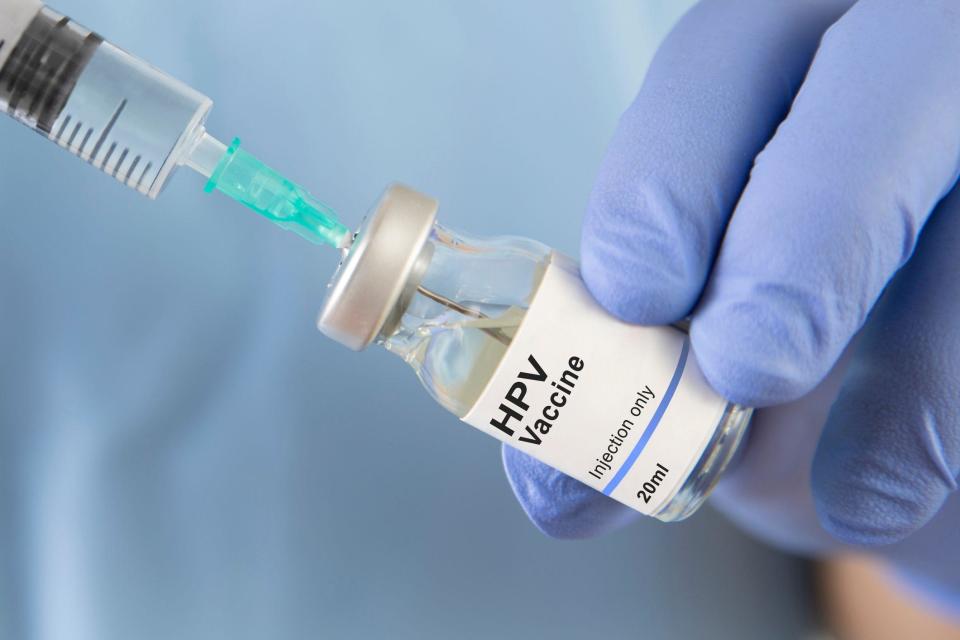Penis cancer cases increasing: Brazil sees 6,500 amputations in a decade

In 2018, Brazilian pensioner João sought medical help after he found a wart on his penis.
"I started visiting medical clinics to find out what it was, but all the doctors told me it was due to excess skin and prescribed medication," the 63-year-old recalls.
Despite the medication, the wart continued to grow. It started to take a toll on his marriage and João and his wife's sex life declined. "We were like siblings," he admits. He was determined to find out what was going on.
For five years João, not his real name, went back and forth to specialists who prescribed more medication and ordered new biopsies. "Nothing solved it," he says.
Then, in 2023, he was given a diagnosis - João had penile cancer.
"For my family, it was a very unpleasant surprise, even more so because I had to have part of the penis amputated. I feel like I was decapitated," he says.
"It's a type of cancer that you can't talk about with people because it could turn into a joke."
Penile cancer is rare, but incidences and mortality rates are on the rise around the world.
According to the latest studies, Brazil, where João is from, has one of the highest incidence rates of 2.1 per 100,000 men.
'Terrified of surgery'
Between 2012 and 2022, there were 21,000 reported cases, according to Brazil's Ministry of Health. This resulted in more than 4,000 deaths and, over the past decade, there have been more than 6,500 amputations - averaging two each day.
Maranhão, the poorest state in Brazil, was found to have the highest incidence rate globally at 6.1 per 100,000 men.
Symptoms of penile cancer often start with a sore on the penis that does not heal and a strong-smelling discharge. Some people get bleeding and colour changes of the penis, too.
When detected early, there is a high chance of recovery through treatments such as the surgical removal of the lesion, radiotherapy and chemotherapy.
But if left untreated, partial or total amputation of the penis, and possibly other nearby genital organs such as the testicles, may become necessary.
João underwent a partial amputation in January and says it was a difficult time.
"It's something you never imagine will happen to you, and when it does, you can't just go around telling people," he says.
"I was terrified of surgery, but there was no other alternative. The feeling in the first weeks after the surgery was one of sadness, I can't deny it. Not having part of your penis is horrible."
Some patients undergo a total amputation which is life-changing.
Thiago Camelo Mourão from the Department of Urology at AC Camargo Cancer Center in São Paulo says: "In the case of partial amputation, urine continues to exit through the penis.
"However, in total amputation, the urethral orifice can be relocated to the perineum, between the scrotum and the anus, requiring the patient to urinate while sitting on the toilet."

Mauricio Dener Cordeiro of the Brazilian Society of Urology says the persistent infection of human papillomavirus (HPV), a name given to a common group of viruses, is "one of the main risk factors". HPV can be transmitted during sex and in some cases, it can lead to cancers including in the mouth and penis.
He says: "Mass vaccination against HPV is essential due to its high effectiveness in preventing related lesions," but he adds that vaccination rates in Brazil are below the level needed to be truly effective.
"In Brazil, despite the availability of the vaccine, the HPV vaccination rate remains low for girls - reaching only 57% - and for boys, it doesn't exceed 40%,” he says. “The ideal coverage to prevent the disease is 90%."
He believes misinformation about the vaccine, unfounded doubts about its effectiveness and a lack of vaccination campaigns have contributed to the low take-up.
According to the UK’s National Health Service (NHS) website, smoking can increase the risk of getting penile cancer, too. It also says you might be more likely to get penile cancer if you “have problems pulling back your foreskin (the skin covering your penis) to keep your penis clean (a condition called phimosis)”.
"When a man does not expose the glans and fails to clean the foreskin properly, it produces a secretion that accumulates," Dr Cordeiro says. "This creates a highly favourable environment for bacterial infections.
"If this occurs repeatedly, it becomes a risk factor for the appearance of the tumour."

But Brazil is not the only place where penile cancer is on the rise. According to the latest research, the number of cases is increasing around the world.
In 2022, the journal JMIR Public Health and Surveillance published the results of a large-scale analysis involving the latest data from 43 countries.
It found the highest incidence of penile cancer between 2008 and 2012 was in Uganda (2.2 per 100,000), followed by Brazil (2.1 per 100,000) and Thailand (1.4 per 100,000). The lowest was in Kuwait (0.1 per 100,000).
"Although developing countries still bear the higher incidence and mortality of penile cancer, the incidence is on the rise in most European countries," the team of researchers led by Leiwen Fu and Tian Tian from Sun Yat-Sen University in China found.
They reported that England had seen an increase in penile cancer, rising from 1.1 to 1.3 per 100,000 between 1979 and 2009 and in Germany cases increased by 50% from 1.2 to 1.8 per 100,000 between 1961 and 2012.
These figures are only set to get higher, according to the Global Cancer Registries prediction tool. It estimates that by 2050, the global incidence of penile cancer will rise by more than 77%.
This change can largely be attributed to the ageing population, according to the experts, who say the highest incidence occurred in men in their 60s.
Dr Cordeiro says: "Penile cancer is a rare disease but also highly preventable".
He advised that using condoms during sex and undergoing surgery to remove the foreskin in cases of phimosis could help reduce the risk of penile cancer.
Neil Barber, Clinical Lead for Urology at Frimley Health NHS Foundation Trust, adds: "Penile cancer is almost unheard of in the circumcised population. Poor hygiene and infections beneath the foreskin, as well as conditions like phimosis that make it difficult to retract the foreskin and maintain good hygiene, are risk factors. This is linked to higher overall infection risks".
"Established risk factors also include unprotected sex, specifically not using condoms, with poor hygiene further increasing risks through this route."
João is currently waiting for his latest test results, which he will receive later this year. "I'm confident that these exams will show that I'll be cured," he says.
"Now, following the amputation, the pain has gone away, and I've been feeling much better. But I'll have to live with a partially amputated penis for the rest of my days."
According to Cancer Research UK, more than 90% of men diagnosed with penile cancer which has not spread to nearby lymph nodes survive for five years or more.
Additional reporting by Rone Carvalho, BBC Brasil


